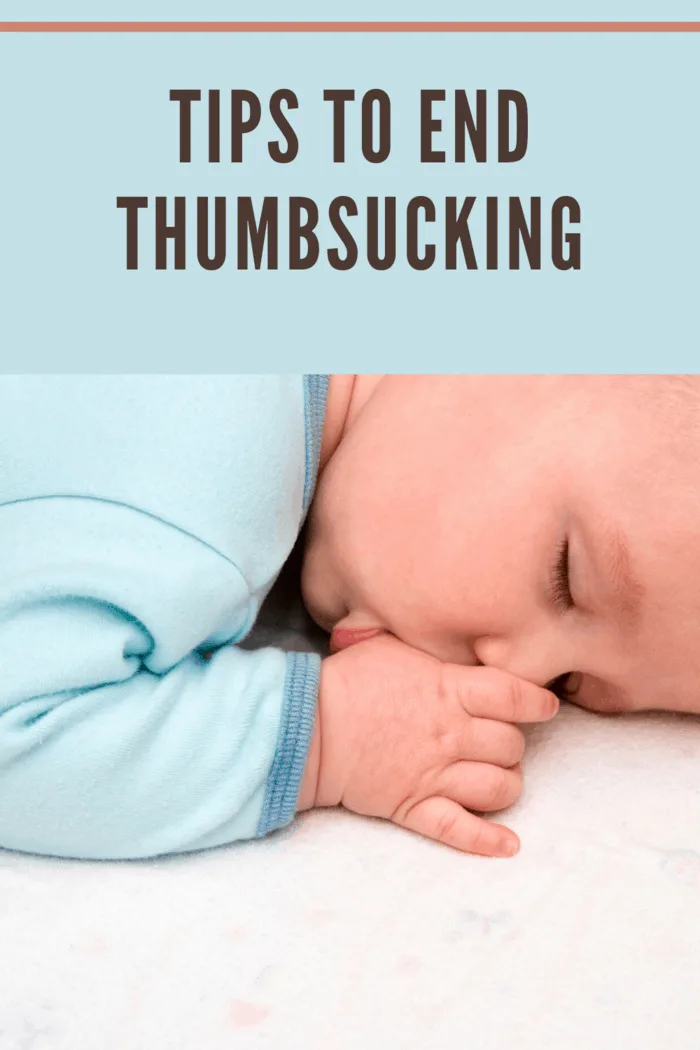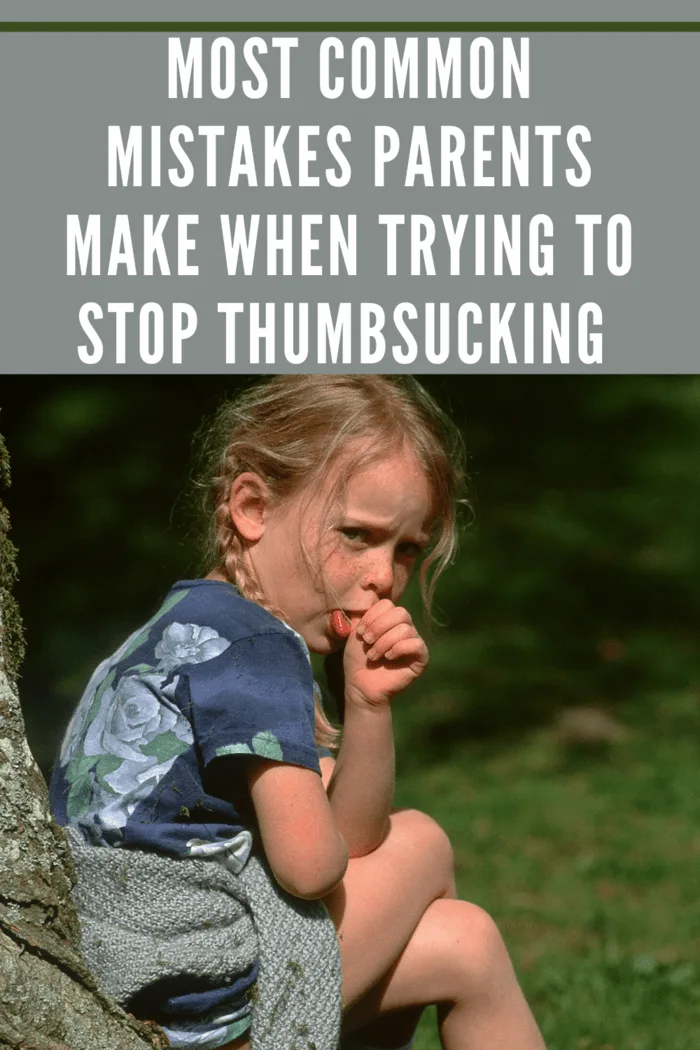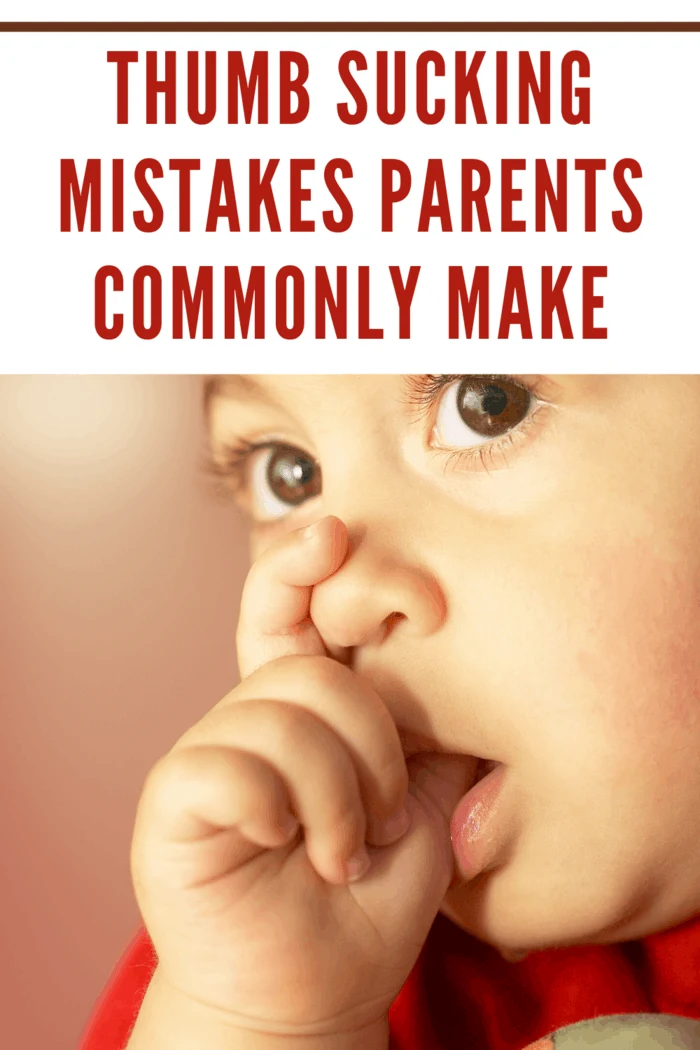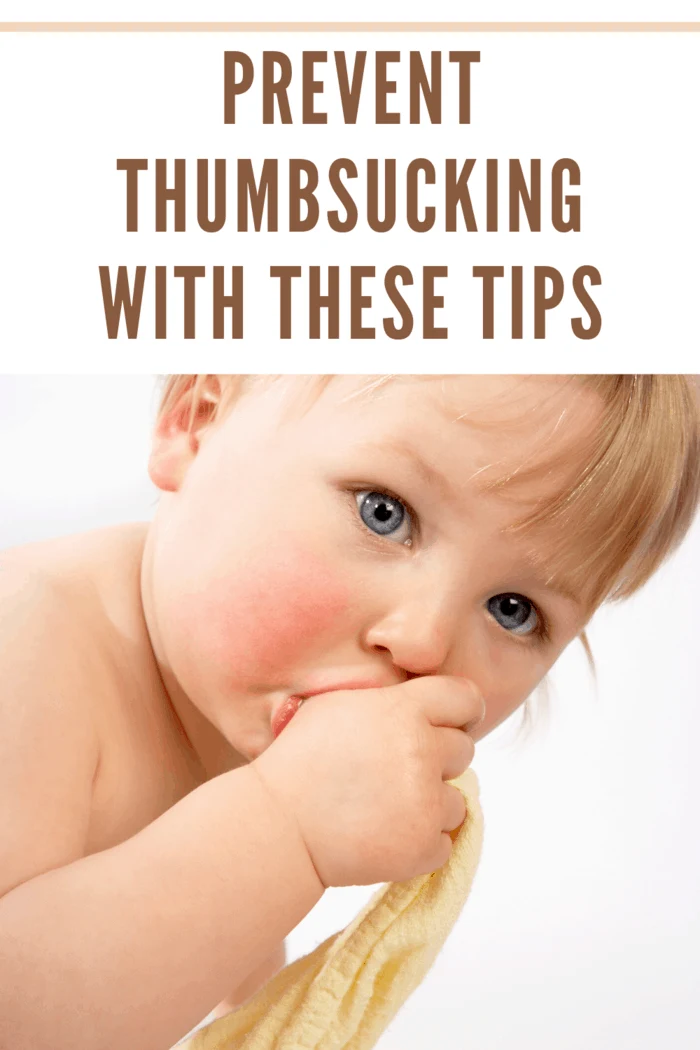There is nothing more precious than going for an ultrasound and seeing your unborn child in the fetal position sucking their thumb.
Most parents would agree it’s the cutest thing in the world.
Yet, once your newborn becomes a toddler, this once cute self-soothing habit isn’t so appealing anymore.
In fact, if they continue sucking their thumb they could ruin their smile and/or expose themselves to a ton of germs and bacteria from their hands, and some kids even develop speech impediments.
Either way, at some point, parents realize the importance of getting their kids to stop.
While getting your toddler or school-aged child to stop sucking their thumb is recommended, how you get them to do this matters significantly.
Using safe measures like reading books, singing their praises, or using a thumb guard is ideal, while other methods can be extreme and counterproductive.
Below, is a look at some mistakes you don’t want to make as you try to motivate your little one to stop sucking their thumb.

Thumb Sucking Mistakes Parents Commonly Make
Yelling
Thumb Sucking Mistakes Parents Commonly Make
Believing that talking in a loud, stern, or harsh voice will deter their children from sucking their thumb, they will yell every time the thumb enters their mouth.
What ends up happening, however, is the child gets frightened by your tone and starts sucking their thumb as a way to calm down.
The fright is not a good behavior management tool.
Speak in a soothing, calm voice instead.
Punishments
Another big mistake you don’t want to make is punishing your child for sucking their thumb.
This is a natural habit they’ve developed and it can take time for them to quit.
Making them sit in time out or excluding them from playtime or other fun activities doesn’t work.
In fact, it only makes them feel worse and causes them to suck on their thumbs to find relief from the stress.
Positive reinforcement is always best and is proven to help change habits much more effectively.

Teasing
“Look at the baby sucking their thumb.”
“Get away from me, that’s nasty.”
At the time, telling your toddler that they’re a baby or that sucking their thumb is nasty may seem like a good way to get them to stop.
However, this does quite the opposite.
Your child craves your praise and attention, especially at this age.
The very last thing you want to do is make them feel bad about themselves by teasing them.
When they feel teased or taunted for doing what’s familiar to them, they get sad or begin to feel isolated from their family and friends.
This will not only result in them sucking their thumbs more but can lead to other social and mental issues.

Bitter Nail Polish
Applying a coat of bitter nail polish for thumb sucking to fingernails might be an effective way to stop older children and adults from biting their nails, but it isn’t very effective in keeping toddlers from sucking their thumb.
This is because toddlers have not yet developed a great sense of taste, therefore, the subtle yet “horrible” taste that’s supposed to serve as a reminder won’t work for your little ones.
It’s also important to point out that some nail polishes have harsh chemicals and ingredients in them that you don’t want your toddler sucking on all day.
Starting Too Soon
Believe it or not, the American Dental Association recommends quitting at age three.
Some parents, and even pediatric dentists, anxious to break the habit, will start trying to get them to stop earlier.
With a limited ability to communicate when something is wrong or to control their overwhelming emotions, thumb sucking is a mechanism used to soothe.
Breaking the habit too soon is not only confusing for your little one but leaves them with very limited solutions to calming themselves down.
Stopping before age 1-2 may be premature.

Not Considering Other Factors
Remember, babies and toddlers suck their thumbs as a way to calm their feelings of boredom, stress, or anxiety.
If your child continues to suck their thumb even after you’ve tried effective measures to get them to stop, there could be something else going on.
Talk with your child to find out if there are things going on at home or in school that is causing them to feel this way.
Ignoring the underlying issues will only lead to more problems down the road.
As you know, thumb sucking is a habit that can lead to misaligned or crooked teeth as well as exposure to germs and bacteria.
While it is important for your child to break this habit by the time they are 4-6 so that permanent misalignment does not occur, you don’t want to make the mistakes listed above.
As you can see, these solutions can lead to increased thumb sucking, hurt feelings, and other problems such as social and even psychological if it goes on for too long.
Look for positive ways to help your child stop sucking their thumb while also giving it time and practicing patience.
